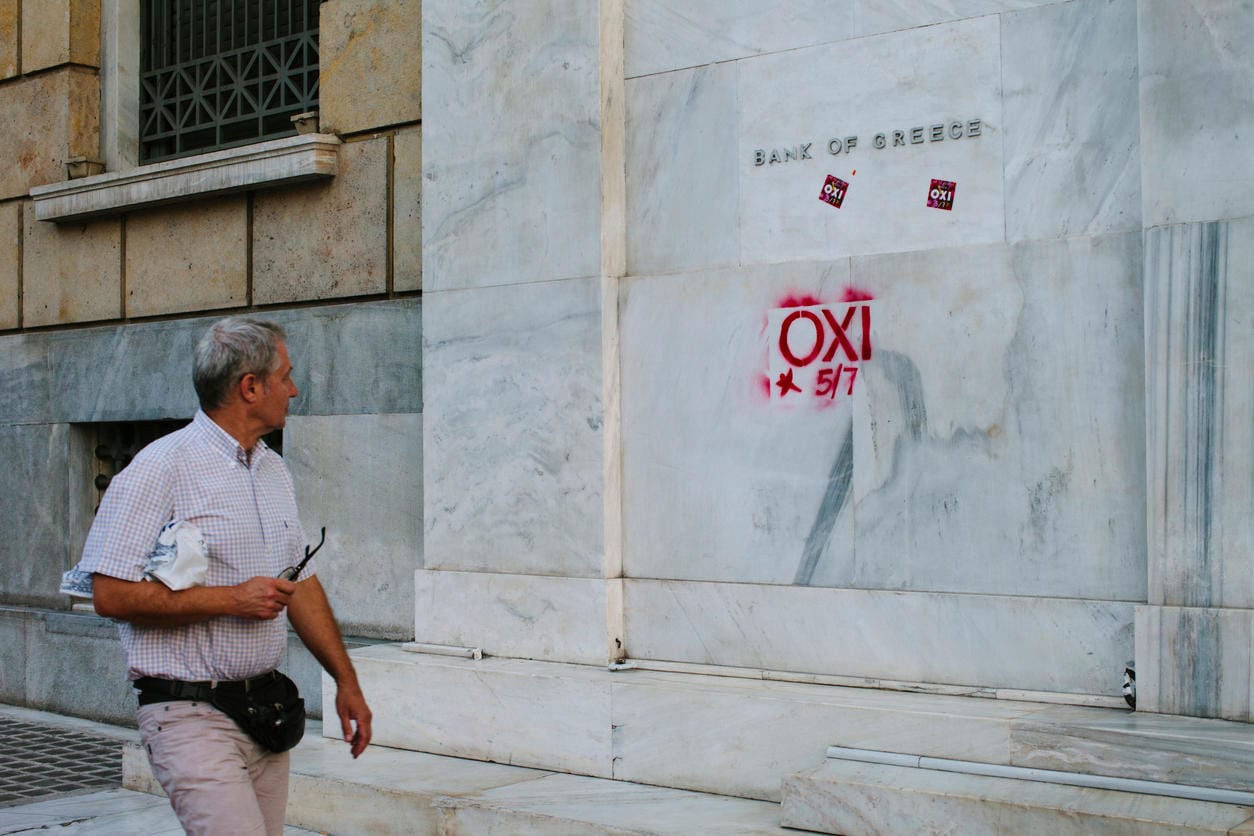
In August, the Greek Prime Minister, Alex Tsipras, declared that the Greek bailout crisis – close to nine years of angst, austerity and public outrage – was finally over. “Greece has managed to stand on its feet again,” his office said. “Now a new page of progress, justice and growth can be turned.”
Poor Greece is hardly triumphant. Unemployment stands at 19.5 per cent, a figure that doesn’t include those who have given up searching for work. Since the crisis began, 500,000 Greeks have emigrated, most of them young tertiary-educated people and members of the professional class – a significant loss in a nation of 11 million. And the Greek debt remains the highest in the European Union, 180 per cent of the GDP.
Since the crisis began, the economy has contracted by 26 per cent, but tourism is again booming and is expected to expand by 2 per cent this year and 2.4 per cent the next. At the same time, the economies of Greece’s nearest neighbours – Turkey and Italy – are wobbly. Further afield, US President Donald Trump is imposing tariffs and spooking the markets.
Will Greece be able to keep growing while paying its debt, as the EU has declared?
“All the projections are based on optimistic scenarios – that there’s not going to be any global recession in 42 years, the repayment program having been extended until 2060," says Natalie Doyle, a deputy director of the Monash EU Centre and a lecturer in French and European studies
"It’s unlikely that the world will keep going without having another recession at some point. Some people have announced that Greece is entering a new phase and the crisis is over. That is totally incorrect.”
Although Greece is no longer receiving bailout payments, the economy will continue to be subject to foreign surveillance.
“They’re still required to maintain a 3.5 per cent surplus until 2022, and then going to 2.3 per cent until 2060. That’s quite a big surplus for a country that has huge social needs,” she says.

“And then there’s the question of the debt repayments. Some people argue that they’re not sustainable. From 2033 to 2060, they will have to repay about 60 per cent of the state tax revenue to maintain the debt repayments. It’s an incredible burden for the country, and there’s a question over whether they can maintain that level.”
“The IMF has given it a 6 per cent chance of success,” says George Nikolaidis, a political economist and PhD student. He’s also a member of the diaspora that left Greece during the crisis. His PhD is on the 2015 referendum that, for many Greeks, remains the catastrophe’s defining moment.
The price to pay
The referendum on whether to accept the austere bailout conditions proposed by the ‘troika’ – the International Monetary Fund, the European Commission and the European Central Bank – was held on July 5, 2015.
Proponents of the ‘yes’ vote argued that austerity was the price Greece had to pay for remaining in the eurozone.
Sixty-one per cent of voters rejected the bailout terms by voting ‘no’.
Then, three days after the ‘no’ vote won, the government of leftist Prime Minister Tsipras formally asked for a three-year bailout from the eurozone rescue fund and agreed to start implementing reforms. The rescue package included larger pension cuts and tax increases than those rejected by the Greek people in the referendum.
“Some people have announced that Greece is entering a new phase and the crisis is over. That is totally incorrect.”
What caused the government to ignore the referendum result?
Nikolaidis hypothesises that Prime Minister Tsipras called the referendum as a bluff and to buy time, and never intended to reject the bailout terms – a position that could have led to Greece leaving the eurozone and returning to the drachma.
He points out that the referendum didn’t ask the Greeks if they were in favour of changing their currency.
“The country has always been in favour of the euro,” he says. “They don’t like European institutions, they don’t like politicians, they don’t like anyone – but they like the currency.
“I also think they were betting that parties like Podemos in Spain would come to be the major political force,” he says.
If all the countries of the south had rejected austerity in a bloc, Tsipras’ Syriza party might have honoured the referendum result. Instead, the protesting Greek people were isolated.
Nikolaidis observes that the eurozone has gained from Greece staying in the union (Germany, for instance, has made 2.9 billion euros in interest payments on Greek bonds since 2010). “But Greece has had massive negative effects from what had to be done in order to stay.”

He nominates long-term unemployment as “probably the scariest” consequence, because it erodes the social fabric; in Greece, it now stands at 70 per cent. Also alarming is the level of cynicism and alienation, which has been heightened since the referendum.
Taxes remain unsustainably high, adding to the people’s disenchantment. “Greece is trying to increase tax revenue by taking as much as they can from those who cannot avoid it,” Nikolaidis says.
Dr Doyle concurs. “It’s the people who are left in Greece, the ones who didn’t take their money out of the country when the crisis first hit, who are the most vulnerable,” she says. Last year, for example, 135,000 Greeks returned property they had inherited to the state, because they could not afford to pay the property taxes.
What about the rest of Europe?
Corruption, tax avoidance and the rebellious spirit of the Greek people are often cited as contributors to the crisis. However, Dr Doyle points out that austerity programs were also imposed on Cyprus, Portugal, Ireland and Spain, which had no pre-existing debt problem but used public money to bail out their overexposed banking sectors and in the process entered the same danger zone as Greece.

“There were structural issues, and those issues were linked to the way the eurozone was created,” she says.
Greece entered the eurozone with a large debt in drachma. With the advent of the euro, the debt was converted into the new currency and automatically grew because it was “valued according to criteria that were no longer established to assess the Greek economy itself, but the value of the eurozone".
"And the rules of the eurozone forced Greece to roll over its debt through the markets. Then it became a much more difficult problem to resolve.”
The debt was hidden in Greece – as it was in Cyprus, Portugal, Ireland and Spain – because eurozone countries with surpluses sent capital to the south, Dr Doyle says, giving an illusion of economic growth.
Then the GFC hit, and the sleight of hand was exposed. The Greek debt was the largest, and the national response was the most volatile, but the structural problems within the eurozone were evident elsewhere.
“It’s the people who are left in Greece, the ones who didn’t take their money out of the country when the crisis first hit, who are the most vulnerable.”
The austerity programs that were part of the bailout involved enforcing the terms of European treaties signed by member countries in better times. Although some economists and politicians argued that the European Union imposing cuts on contracting economies was counterproductive and undemocratic, austerity was the only strategy the treaties allowed.
The lack of flexibility within the eurozone, and the divisions between rich and poorer nations, are issues that remain, Dr Doyle says.
“The eurozone was badly designed. We have that problem and we need to address it. French president Emmanuel Macron has tried to gain support to bring in a radical reform of the Eurozone, but regardless of whether his proposals would really address the problem, he is isolated, as Germany, Belgium, Netherlands and Finland have expressed their opposition and wish to hold on to the status quo.
"That's part of the tragedy – and it's not just the tragedy of Greece."





